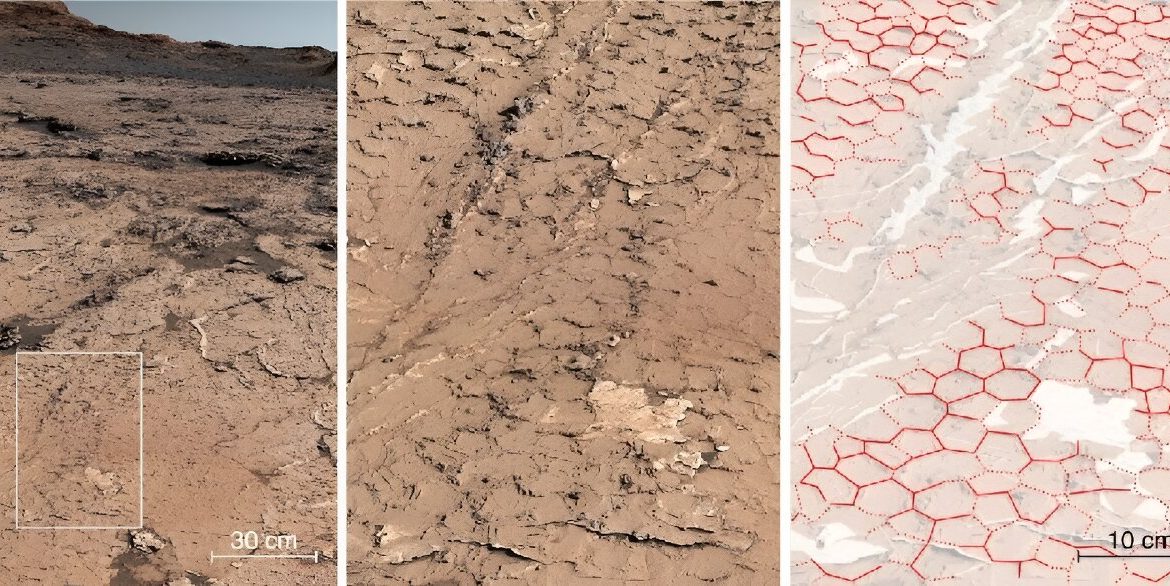
Weather on Mars, Once
Scientists have discovered evidence that Mars once had a climate that alternated between different seasons, similar to Earth.
Fossil evidence of a cyclical climate with wet and dry seasons like those on Earth has been found. A paper published in Nature based on studies using data from NASA’s Curiosity rover, suggests that the red planet once had wet and dry seasons, and may have had the right conditions to support life.
Although today’s Martian surface is an arid desert, it is thought to have hosted rivers and vast lakes billions of years ago.
Since 2012, the Curiosity rover has been exploring the vast Gale Crater, believed to be the site of an ancient lake bed, with a huge mountain of sediment, about 6 km high, at its centre. Scientists had failed to understand what kind of climate this region is associated with, until recently. While climbing the slope of the sediment mountain in 2021, Curiosity discovered salt deposits with hexagonal cracks stretching on the surface, dating to about four billion years ago.
When a lake dries up, mud cracks form, and when it fills up again, the cracks heal. If this process repeats enough times, the cracks are arranged in hexagons.
For this reason, the researchers believe that the finding is the first concrete evidence that Mars once had a cyclical climate and that regularly occurring wet and dry seasons, just like those on Earth, could have provided suitable conditions for life to flourish.
Because the surface of Mars is not constantly changed by plate tectonics, unlike the Earth’s, it is notable for the abundance of well-preserved areas with remnants of rivers and lakes from billions of years ago.
Curiosity had already detected the presence of organic compounds considered to be the potential building blocks of life on Mars. However, there was no indication of the suitable conditions that these building blocks need to become the precursors of life. In a world that is too dry or too wet, these molecules do not have the opportunity to form. For more than 11 years, ample evidence has been found that ancient Mars may have supported unicellular life; and now we have data on conditions that may have also supported the origin of life.
Studying Mars, which lacks tectonic plates, is important to help scientists solve the mystery of how life began on our own planet. The discovery of such an ancient landscape would never have been possible on Earth. This major discovery opens new horizons for the search for the origin of life.
REFERENCES
- 1. https://phys.org/news/2023-08-mars-wet-dry-climate-conducive-life.html
- 2. https://www.smithsonianmag.com/smart-news/mud-cracks-on-mars-hint-at-conditions-that-could-have-formed-life-long-ago-180982706/
